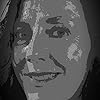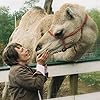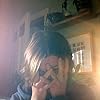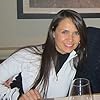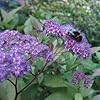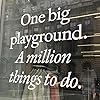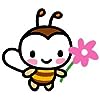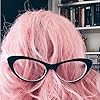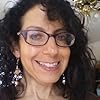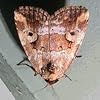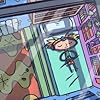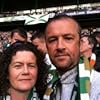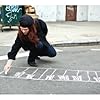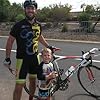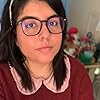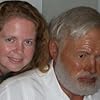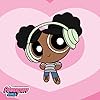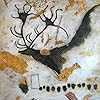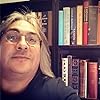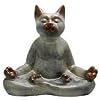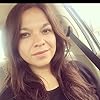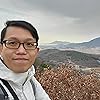To answer questions about
The Vegetarian,
please sign up.
Leah Stein
I don't think there's a clear thing to "get" here. It's purposely open for interpretation, while it's also a very open ending; we don't know what happens next. But the story, I felt, was more of an allegory than the character's story, and they were used to portray a certain conflict that exists within all humans. In part 1 we see the process of one giving in to a deep calling within themselves, one they can't quite put into words. In part 2 we see a more 'wrong' side of that giving in to our animalistic, or primitive, desires - when it affects those around us and harms them. And finally in part 3, I felt like the sister was much like the reader, trying to piece the two parts together and begin self-reflection. How much can I relate to these characters who have succumbed to their impulses? Are they 'wrong' just because they don't act as society says they should? Should we suppress our deepest desires? Is that a life worth living? There is also a big question about responsibility, I felt, how the sister confesses that she also has these crazy ideas sometimes, and she has had suicidal thoughts in the past, but in the end, she didn't act upon these feelings or impulses. And that's why I think the ending is left hanging - kinda feels like mid-sentence almost - because there is a big question here and it doesn't have an answer. Each of us can answer for ourselves. This book is like a case study at the beginning of an interesting debate, in my opinion.
Kristin Rounds
Not the only one. About 2 pages before the end, I thought I was beginning to understand. Then it ended, and I had no idea what had happened.
Jason
This answer contains spoilers…
(view spoiler)
Julia Harpur
This is what Han Kang said in an interview:
“In the last part, I didn’t want to describe the death of Yeong-hye. I wanted to end this book with the final scene, where In-hye looks out the ambulance window with a protesting gaze. I felt that this was a scene of gazing with all one’s energy at this world of mingled violence and beauty. Without start or finish, only struggling tenaciously with her open eyes, in the same form/way of “now” in our life.“
“In the last part, I didn’t want to describe the death of Yeong-hye. I wanted to end this book with the final scene, where In-hye looks out the ambulance window with a protesting gaze. I felt that this was a scene of gazing with all one’s energy at this world of mingled violence and beauty. Without start or finish, only struggling tenaciously with her open eyes, in the same form/way of “now” in our life.“
Deb cambria
I don't think it was a very good book at all. I cannot understand the great reviews.
Terri Trujillo dunlap
I read the last two pages three times and still not really sure what happened.
Michael de Salazar
In-hye saw a black bird begin to fly. That was Yeong-hye's soul, since she died in that ambulance.
Evie
This answer contains spoilers…
(view spoiler)
Sylvie
Not at all! It is, I think, deliberately ambiguous. Read the passages about the forest again, and imagine how In-hye tries to enter into her sister's psyche? I may be wrong, but that's the way In-hye came close to understanding what was going on. Even so she probably couldn't stop her sister starving to death.
Harlow
I really liked the first 2 parts (The Vegetarian, Mongolian Monk). Part 3, Flaming Trees, not so much. Will need to think about how I feel about this book.
Amy
I finished the book last night and had the same thought. I like this question and I'm glad you asked it because I get to read everyone's intelligent responses. Thanks!
Isabel
I didn't see this as a traditional story with a beginning, middle, climax, and denouement. Instead, it was three portraits of the concept that doesn't get described in exact words until the last section, the "thread" that connects us all to society at large.
For Mr. Cheong, this thread is unbreakable. His entire life, boring and safe, is structured around preserving this thread.
For the video artist, the expected thread exists only in relation to his son, and even that is tentative. Instead, his thread is tied to his art, which is a tether, but not one that is fully understood by the rest of society.
For In-hye, through seeing her sister become completely untethered, sees her own thread, and through becoming aware of it, now has a choice of whether or not to break it. She can walk into the woods with a thick rope looking for a tree and abandon her son, her work, her entire life, or she can continue living as the responsible one, but now with the self-awareness to make that a choice rather than shaping her identity around what her environment demands (first to survive her abusive father and then to take care of her husband/son).
For Mr. Cheong, this thread is unbreakable. His entire life, boring and safe, is structured around preserving this thread.
For the video artist, the expected thread exists only in relation to his son, and even that is tentative. Instead, his thread is tied to his art, which is a tether, but not one that is fully understood by the rest of society.
For In-hye, through seeing her sister become completely untethered, sees her own thread, and through becoming aware of it, now has a choice of whether or not to break it. She can walk into the woods with a thick rope looking for a tree and abandon her son, her work, her entire life, or she can continue living as the responsible one, but now with the self-awareness to make that a choice rather than shaping her identity around what her environment demands (first to survive her abusive father and then to take care of her husband/son).
Thomas Hettich
This answer contains spoilers…
(view spoiler)
Agostina Di Domenico
For a second I thought In-Hye was about to kill herself (therefore, abandoning her son).
Jen
This answer contains spoilers…
(view spoiler)
David Feldman
In journalism the word story can mean at least two different things: an actual connected sequence of events, or the text or article that reports that sequence. Most people understand the purpose of such texts or articles as the accurate communication of actual events, but the publisher may see selling papers or advertising as the deeper purpose. And some philosophers even doubt the existence of "an actual sequence of events," and assert that we actually live in world of texts and other representations.
Many readers approach reading a novel as they would a newspaper article, and build in their minds a sequence of events that the novel reports. Of course no such actual events exist, we only have the text. Authors have widely embraced this truism since at least the beginning of the 20th century and toyed with it. Certainly the purpose of a novel consists of something different than merely accurately reporting a sequence of event. Generally one might say it lies with creating an experience for the reader. The text might contradict itself and thus manifestly not represent even a sequence of merely possible events. The text may embrace ambiguities and thus simultaneously represent several very different possible sequences of events. The author might even embrace the we-live-in-a-world-of-texts philosophy, and thus tell the stories of the stories different characters construct each from their own viewpoint.
The Vegetarian, at least in translation, mostly relies on very simple language, as direct as that we associate with journalism. This encourages the reader to build mentally a world about which the book seems to report. But where the book really works on the reader, it veers, but only briefly, into heightened language more like poetry. Dreams play a key role, and no sharp boundary divides dreams from purported events.
Mr. Cheong, the unnamed video artist, and In-hye each seem to have their own realities. Of course, Yeong-hye too, but she practically never gets her say. Since she unites the whole novel, I found the novel affected me by inducing the wish to hear her viewpoint, particularly because the other characters seem so manifestly unable to hear her.
For me the trick of the ending goes like this: as Yeong-hye fully becomes a tree, In-hye begins to become Yeong-hye. As a reader I first build and then surrender the wish to hear from Yeong-hye what everything feels like from her perspective. The "big reveal" never comes. But the twist lies in hearing this after all, but in the voice of In-hye, and even before the author has cued me to the deeper significance.
I don't think it matters whether Yeong-hye will live or die - the author has told us that it doesn't matter to her - and thus we never need to know. But death of some sort shades the ending, with the "black bird flying up toward the dark clouds," which has other place where the author positions it if not meant as a symbol.
Many readers approach reading a novel as they would a newspaper article, and build in their minds a sequence of events that the novel reports. Of course no such actual events exist, we only have the text. Authors have widely embraced this truism since at least the beginning of the 20th century and toyed with it. Certainly the purpose of a novel consists of something different than merely accurately reporting a sequence of event. Generally one might say it lies with creating an experience for the reader. The text might contradict itself and thus manifestly not represent even a sequence of merely possible events. The text may embrace ambiguities and thus simultaneously represent several very different possible sequences of events. The author might even embrace the we-live-in-a-world-of-texts philosophy, and thus tell the stories of the stories different characters construct each from their own viewpoint.
The Vegetarian, at least in translation, mostly relies on very simple language, as direct as that we associate with journalism. This encourages the reader to build mentally a world about which the book seems to report. But where the book really works on the reader, it veers, but only briefly, into heightened language more like poetry. Dreams play a key role, and no sharp boundary divides dreams from purported events.
Mr. Cheong, the unnamed video artist, and In-hye each seem to have their own realities. Of course, Yeong-hye too, but she practically never gets her say. Since she unites the whole novel, I found the novel affected me by inducing the wish to hear her viewpoint, particularly because the other characters seem so manifestly unable to hear her.
For me the trick of the ending goes like this: as Yeong-hye fully becomes a tree, In-hye begins to become Yeong-hye. As a reader I first build and then surrender the wish to hear from Yeong-hye what everything feels like from her perspective. The "big reveal" never comes. But the twist lies in hearing this after all, but in the voice of In-hye, and even before the author has cued me to the deeper significance.
I don't think it matters whether Yeong-hye will live or die - the author has told us that it doesn't matter to her - and thus we never need to know. But death of some sort shades the ending, with the "black bird flying up toward the dark clouds," which has other place where the author positions it if not meant as a symbol.
Nancy
So glad to read all these intelligent thoughts on this book. I couldn't put it down and then at the end couldn't figure out what exactly happened. I, too, read the last ten pages several times and after reading many of the remarks below am coming to a greater understanding of the possibilities in the ambiguous ending.
Stéphanie Jurzysta
This answer contains spoilers…
(view spoiler)
Nicole
Lindsay (previous poster), actually pointed out something I hadn't noticed. I didn't interpret In-hye's going into the mountains as being an almost-suicide attempt, but that does seem like a valid hypothesis. The only point I differ on regarding Lindsay's particular post is that at the very end when In-hye is telling Yeong-hye that she too has dreams, In-hye actually seems like she's *trying* to find a reason why the dreams shouldn't overtake her, rather than being defiant against the trees. I only find this reading of the novel to make some sense because In-hye never gives a solid answer to the "Because . . . because then . . .". It seems like In-hye is still not entirely sure herself why it would be so bad to die. Overall I enjoyed the work, and maybe it isn't supposed to have a concrete ending, but its fun to try and figure out. I'll definitely have to give this one another read.
Vince Senski
I liked the book and I'm usually not a reader of fiction. I was also thrown off by the ending - about abandoning her son - and I had to reread the last pages numerous times. I tend to agree that In-hye is also contemplating suicide or simply disconnecting from the society she knows. In-hye does seem to agree that it doesn't have to be a bad thing to die.
Christi Nash
SPOILER ...I'm pretty sure she abandoned her son because she knew she wasn't capable of raising him after what the men in her life had done to herself and her sister. There's a passage in the book where she experiences guilt that her innocent son is trying to make her laugh and bring her out of her depression, and I think there's so much complexity going on here, not just "the things men do to women" but the role women play as mothers (among other things) in shaping men into what they are. If it is an allegory for South Korea, as well, I believe that the adult males who are authoritarian/rapists/exploiters/sexually selfish and so forth must be a representation of North Korea. That's also a possibility for why the broken women are alone at the end.
Pat
This answer contains spoilers…
(view spoiler)
Johanna Jaworski
I think the end is something like the sister accepts she can't fix this problem and recognises that she has had moments where she wished she could just abandon everyone too - even her son whom she loves and is committed to. The ending did really throw me off, though. It was such a straight-forward story for the most part and all of a sudden, she's with her son, or she's on a mountain or she turning into a bird, maybe she had previously abandoned a baby? I found myself angry at the book and with the sister-character precisely because this unexpected turn of events and I had to wonder if that wasn't the purpose. After all the sudden change to vegetarianism seemed to be the trigger for anger against the main character and maybe we can recognize the tendencies in ourselves to have a hard time accepting choices we can't understand.
Despanish
Nope. And I couldn't wait for it to end either.
Tina
This answer contains spoilers…
(view spoiler)
Rob Barrie
This answer contains spoilers…
(view spoiler)
Irene James
I actually didn't get THAT much either and I normally love open endings like that. I honestly felt like the novel was kind of incomplete. There were some weird turns there that I was like: "Whaaa?". I don't know, maybe it's worth a second read to really read between the lines.
Wendy
No I was very confused by the ending. Did she die, did her sister become crazy herself so many unanswered questions?
Maria
I had to reread this two times over and I still didn't get the ending. The book was lacklustre for me.
Nancy Brennan
I was hoping that we would see the world through Yeong-Hye. I was thinking she wasn't reallly crazy, just different.The more I read, I realized she was damaged by her father. Thoughts?
Heather Brush
I felt the same. Though I do wonder if In-Hye is following in her sister's footsteps and maybe we just are meant to feel that loss of reality at the end.
Fabiana Conte
I believe the sister was the one successful on actually becoming a tree.
Her endurance of all the hardships she had to go through. Always being a witness more than the actual person that causes change. She was the one that adapted to society and the surroundings. She’s not able to save her sister, that succumbs to her convictions, or her husband, that succumbs to his desires. But in that ambulance she becomes the stubborn but self-protecting tree that despite the temptations of giving up, simply doesn’t.
Her endurance of all the hardships she had to go through. Always being a witness more than the actual person that causes change. She was the one that adapted to society and the surroundings. She’s not able to save her sister, that succumbs to her convictions, or her husband, that succumbs to his desires. But in that ambulance she becomes the stubborn but self-protecting tree that despite the temptations of giving up, simply doesn’t.
Wonderwoman
This answer contains spoilers…
(view spoiler)
Wine of Ages
Nope, I stood there too like, huh?
Agilitycape
In-hye finally understood
John
No! I finished it last night and had to re-read the last ten pages to make sure I didn't miss something!
Mia
Like you, I didn't have a clue. All of a sudden the sister leaves her kid and muses on the futility of life? Or something? Oh well!
Ishrat
The ending is quite clear. In-Hye saw a black bird fly into the sky just after her final attempt to convince her sister to not give up on life. The black bird compares with white bird In-Hye's son saw in his dream, when she's gone up the mountain to attempt suicide. Yeong-Hye died (when In-Hye saw the black bird fly away into the clouds and she could no longer see it). In-Hye realizes her sister is gone and looks at the trees in protest.
I am surprised people have been confused.
I am surprised people have been confused.
Dinisha Kadam
(Maybe spoiler.. )The journey of the book from "I had a dream" to "It's just a dream" .. that's what it was about.
Jessica Flores
This answer contains spoilers…
(view spoiler)
Joey Kee
I was lost too. lol
A Name
I just finished reading the book... Please someone tell me, why does she talk about a dream, why does she say it's a dream? What is that she's telling we have to wake up too? Did she actually abandon her son, when, why? And, won't that also be a troubled childhood for a person who is generally happy, as she described her son? SOMEONE. PLEASE. PLEASE ANSWER THESE QUESTIONS. I UNDERSTAND THAT THERE IS NO CLEAR END THAT THE AUTHOR MIGHT HAVE WANTED, THAT THE BLACK BIRD MIGHT HAVE SIGNIFIED DEATH, BUT THAT IS NOT MY QUESTION. I NEED TO KNOW WHAT SHE WAS SAYING ABOUT THE DREAM PART AND HER, ABONDONING HER SON, WHEN? WHY? PLEASE. PLEASE ANSWER IF YOU CAN, PLEASE TAKE SOME TIME BUT REPLY.
About Goodreads Q&A
Ask and answer questions about books!
You can pose questions to the Goodreads community with Reader Q&A, or ask your favorite author a question with Ask the Author.
See Featured Authors Answering Questions
Learn more
